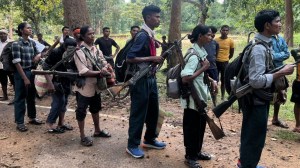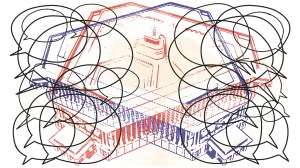NBT said no, now HRD asks why
The National Book Trust NBT is caught in a controversy after it refused to publish a compilation of riot-related laws prepared under direc...

The National Book Trust NBT is caught in a controversy after it refused to publish a compilation of riot-related laws prepared under directions from the National Human Rights Commission NHRC, following the Gujarat riots in August 2002.
The NBT has now been asked by the HRD Ministry8212;under which it functions8212; to explain why it rejected 8216;8216;this valuable document8217;8217;.
With HRD Minister Arjun Singh taking keen interest in the project, his Additional Secretary Sudip Banerjee has written to the new NBT chairman, Prof Bipan Chandra, requesting him to 8216;8216;get the matter looked into to ascertain the circumstances under which the NBT decided not to publish this valuable document, which would have served great public purpose.8217;8217; With the letter, Banerjee sent the manuscript, asking Chandra to 8216;8216;consider publishing it expeditiously.8217;8217;
In May 2002, after then NHRC chairman Justice J S Verma8217;s strong observations against the Gujarat administration, the Commission felt the need for a compilation of existing legal provisions and executive decisions.
And, it advised a retired IAS officer, Samar Singh, to prepare such a volume.
Recalls Justice Verma: 8216;8216;My officers told me this compilation was very necessary. I remember we hired the services of a retired IAS officer Samar Singh and a police officer to get this compilation ready.8217;8217; After the compilation was appended to the NHRC8217;s Gujarat report as an annexure, Singh approached the NBT to have it printed. Initially, there was an enthusiastic response from then director Varsha Das. Within a week, Das revised her stand and said the NBT would not be able to print it.
Samar Singh said he was contacted by the NHRC and told how such a compilation would come in handy. 8216;8216;I was given this assignment in mid-2002 and had just 35 days to complete the job. There are 15 different Central laws, which are applicable in a riot situation and they are all quite scattered. Besides, I had to trace all executive instructions concerned with riots,8217;8217; says Singh. All these provisions come under different Acts and statutes such as the Criminal Procedure Code, Indian Penal Code, Prevention of Corruption Act, etc.
In response to Singh8217;s request, Das wrote on August 22, 2002: 8216;8216;We are very much in need of such a compilation. The m.s. manuscript8230;is with us. However, a final decision rests with the publication committee, which will meet next week.8217;8217; But the second letter from Das, on August 28, said: 8216;8216;Our committee met and8230;since this isn8217;t within the purview of NBT, NBT should not publish it.8221;
Then NHRC secretary Prabir Sen also confirmed that he had asked Singh to put the volume together. Varsha Das was not available for comment, but the then NBT chairman, Sitakanta Mahapatra told The Indian Express from Bhubaneswar: 8216;8216;I am not aware of the manuscript.8217;8217;
- 01
- 02
- 03
- 04
- 05































